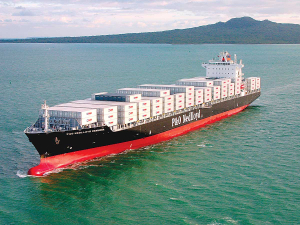The way government regulates the amount of dairy products a company can export is to change.
But it will be at least a year before this comes into force.
Quota allocations are currently based on each dairy company’s share of milksolids collected from farmers. However, this excludes businesses who don’t collect milksolids but who still want to export dairy products into quota markets.
However, Agriculture Minister Damien O’Connor says the new, improved system will instead move to allocation based on each company’s share of total exports by volume of the relevant product, including exports to non-quota markets. He says it will help to boost NZ’s $26 billion dairy export industry.
The present system which is administered by MPI was introduced in 2007, and O’Connor says it is no longer fit for purpose.
“Things have changed, including the fact that since 2017, New Zealand has signed seven new or upgraded Free Trade Agreements (FTAs). NZ now has several new dairy quotas including the European Union and the United Kingdom. The new quota system will make sure that our dairy exporters are able to get the most out of these market opportunities,” he says.
O’Connor says moving away from the prohibitive milksolids model will also open up quota access for non-bovine dairy exports – like sheep and goat products – and provide new room for growth and innovation.
“These changes will ensure that we have a dairy quota system that is fair and provides opportunities for everyone – including small businesses and Māori enterprises,” he says.
The improvements to the dairy export quota system will require amendments to the Dairy Industry Restructuring Act 2021 (DIRA) to be passed by Parliament. The soonest the changes could be in place is by late 2024, meaning that the 2025 dairy export quota allocation round could be made under the new system.


















